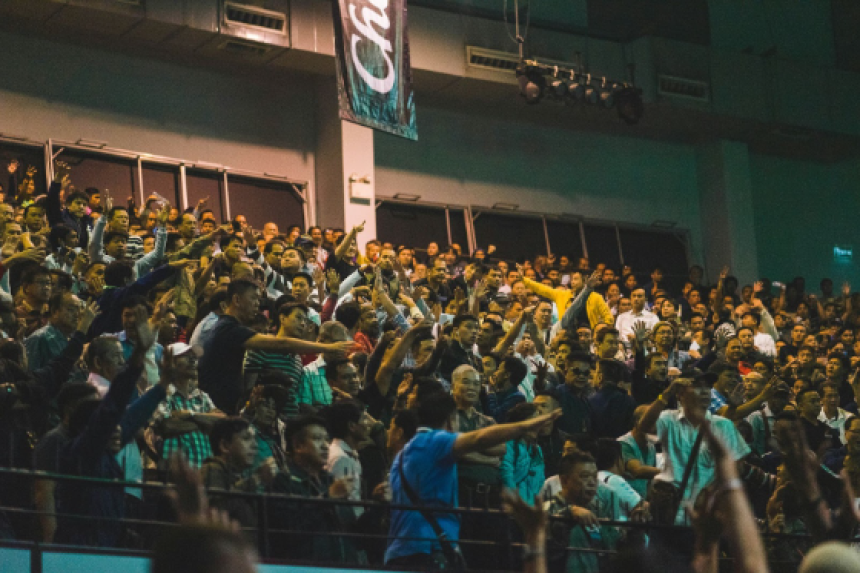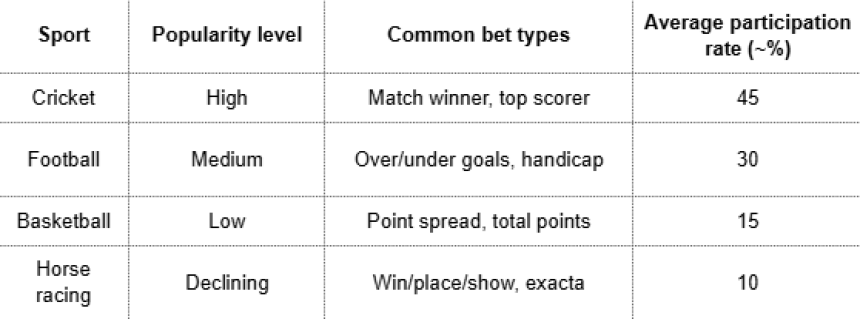
How Sports Betting Became Part of the Culture in Trinidad and Tobago
Explore how sports betting is integrated into Trinidad and Tobago's lively society. Learn about the roots, legal shifts, and social dynamics driving its popularity.
Sports betting has, over the years, become an everyday activity in Trinidad and Tobago, reflecting the cultural diversity of the island. But with the emergence of online facilities, newer challenges have been faced in this industry, which need a balance to maintain entertainment with responsibility, and that's exactly what we look into now.
Historical Roots of Gambling Traditions
Sports betting has its roots as far back as the 19th century in Trinidad and Tobago, when Chinese immigrants introduced the game Whe-Whe, originally reserved for their communities. A simple numerical lottery based on intuition and superstition, Whe-Whe quickly gained acceptance into Creole culture through interethnic marriage and trade.
Horse racing, in turn, became another cornerstone of gambling culture, starting from 1828 with informal competitions. Races attracted both elites and common folk, fostering the development of betting as a social ritual. The Trinidad Turf Club was established in 1897 to formalize the industry by building the Race Stand and establishing rules, thereby making horse betting a part of festive events.
Key milestones in developing gambling traditions on the island include the following:
- Whe-Whe was introduced to Jamaica by Chinese immigrants during the mid-19th century, starting the process of game creolization.
- The ban on Whe-Whe in 1888 as a “vice,” which drove the game underground;
- Establishment of the National Lotteries Control Board, legalizing its analogue in the form of Play Whe.
Still, these traditions have managed to survive and grow, to a greater or lesser degree, and influenced modern instances of betting. One way or another, they prepared the groundwork for integrating wagering into daily life, whereby gambling became a means of communication and cultural expression.
Evolution through Horse Racing and Early Bets
Horse racing in Trinidad and Tobago gained great momentum in the 1960s, only to decline due to the emergence of other forms of entertainment, such as lotteries and casinos. While it remained a cultural cornerstone, its economic importance declined: the yearlings sold fell by more than a third between 1987 and 2016, while the broodmare population fell from 381 in 2006 to 135 in 2016. Horse betting, however, continued to enjoy patrons, illustrating the social function of wagering as a national heritage.
And while racing gave way to more accessible games now easily found on BetZillion's list of top sports betting sites in Trinidad and Tobago, it shaped betting habits, where wagers became a way to support local events. In other words, the industry spurred the growth of private betting shops, competing with official clubs.

Horse racing was thus the forerunner of diversified betting, and today cricket dominates due to its cultural influence. This is especially evident in Stake.com's deal with the Trinbago Knight Riders, which only tightened the bond between sports and betting.
Legal Milestones Shaping the Betting Landscape
Sports betting became legal in Trinidad and Tobago in progressive steps, starting with the Gaming and Betting Act, 2016, which laid down a framework of licensing for operators and consumer protection. Such legal clarity enabled both domestic and foreign companies to operate legally and drive market growth. Prior to that, gambling was often conducted through members' clubs under the Registration Clubs Act to avoid a direct ban.
In 2021, the Gambling (Gaming and Betting) Control Bill brought the Gambling Control Commission into play, with provisions for money laundering and terrorism financing included. With no licensed casinos to speak of, sports betting still remained part of the economy, contributing more than $440 million in revenues during pre-COVID-19 times. Moreover, the new Gambling Control Act, recently implemented in January, saw increased penalties for illegal operations, with lottery-related infractions estimated at 9 billion TTD annually.
The government has set the minimum legal gambling age to 25 years as part of the steps the country has taken recently to protect vulnerable groups. Part of the licensing fees was allocated for addiction rehabilitation and support for sports, arts, and culture. In any case, such changes promote a balance whereby betting is made to becomes safe entertainment.
Social and Cultural Integration of Betting
Trinidad and Tobago sports betting has turned into a social phenomenon, especially in cricket, which symbolizes the pride of its nation. Teams like the Trinbago Knight Riders, formed under the Caribbean Premier League, attract many fans, with cricket representing not just a sport but one of cultural unity — and this is supported through partnerships such as Caribbean Cage, fostering regional identity.
These gambling venues have indeed become the fulcrum of social interaction, marrying the local and the global, from art inspired by Trinidadian culture to cuisine in a casino. Clearly, betting enhances tourism and creates thousands of jobs, and increases the economy through taxation. The downsides include addictive risks, which are particularly at stake with the recent rise in sponsorships by betting companies, such as in the 177 cricket partnerships that were created post-pandemic. Betting culture does require responsible approaches to preserve its positive impacts.
Modern Trends and Future Perspectives
Online betting in Trinidad and Tobago is gaining momentum, particularly after the pandemic, when mobile platforms became a substitute for classic venues. Although it has a very vague status, there is already an estimated multi-billion-dollar market growth, mainly due to esports and live betting, where, through technology, one can instantly place bets during matches; this growth is also due to partnerships with international brands like Stake.com that expand access, though they do require strict regulation.
Now, despite the illegal market's pressures, the government is raising penalties in the name of transparency. Against the backdrop of global growth forecasts of up to $329.6 billion by 2034, the contribution of the local sector could be of real significance. Yet, all this emphasis on responsible gaming via rehabilitation funds raises considerations of balance.
Conclusion
Sports betting in Trinidad and Tobago is not only a cultural habit but also a reflection of historical evolution, social integration, and technological progress. It is now imperative to balance freedom to play with the responsibility to protect as the market grows and regulations are tightened. That is perhaps the biggest challenge.





